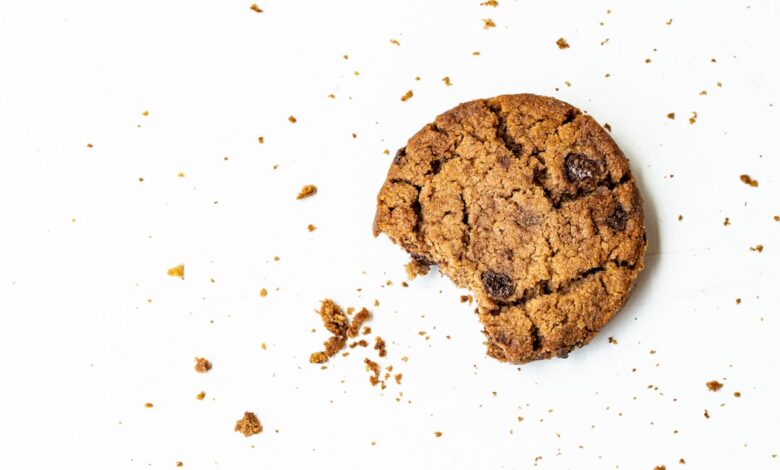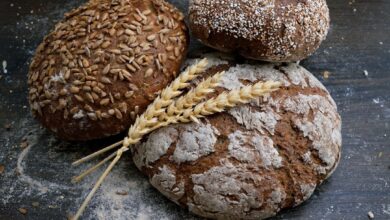Best Sugar-Free Chocolate Chip Cookies Recipe

Craving a warm, gooey chocolate chip cookie but trying to ditch the sugar? You’re not alone! As a passionate baker who also wants to make healthier choices, I’ve spent years perfecting the ultimate sugar-free chocolate chip cookie recipe. And guess what? It’s totally possible to enjoy that classic cookie goodness without the sugar crash!
This recipe isn’t just about swapping sugar for a sugar substitute. It’s about creating a cookie that tastes amazing, has the perfect texture (chewy edges, soft center, anyone?), and won’t leave you feeling like you’re missing out. We’ll be exploring the best sugar alternatives for baking, some secret ingredients to boost flavor, and all the tips and tricks to make your sugar-free chocolate chip cookies a smashing success.
Why Sugar-Free Cookies?
Okay, so why go sugar-free in the first place? There are tons of reasons! Maybe you’re managing your blood sugar, watching your weight, or simply trying to reduce your overall sugar intake. Whatever your reason, cutting back on sugar can have some serious benefits, like more stable energy levels and a healthier smile.
Plus, let’s be honest, sometimes we just want to enjoy a treat without the guilt. These sugar-free cookies allow you to do just that. They’re perfect for a healthier dessert option, a satisfying snack, or even a special treat for someone with dietary restrictions.
Choosing Your Sugar Substitute
The key to a great sugar-free cookie is picking the right sugar substitute. There are many options out there, each with its own unique characteristics. Here are a few of my favorites:
- Erythritol: This sugar alcohol is about 70% as sweet as sugar and doesn’t significantly impact blood sugar levels. It’s a good all-around choice for baking, but it can sometimes have a slightly cooling aftertaste.
- Stevia: A natural sweetener derived from the stevia plant. It’s very sweet, so you only need a small amount. Be careful not to use too much, or it can have a bitter taste.
- Monk Fruit Sweetener: Another natural sweetener that’s derived from monk fruit. It’s similar to stevia in terms of sweetness and can be a good option for those who don’t like the aftertaste of other sweeteners.
- Allulose: This is a rare sugar that’s found in small amounts in some fruits. It has a similar taste and texture to sugar but contains significantly fewer calories and doesn’t raise blood sugar levels. It’s a great option for baking, but it can be a bit more expensive than other sweeteners.
For this recipe, I recommend using a blend of erythritol and stevia or monk fruit. This combination gives you the best of both worlds – the bulk and texture of erythritol with the intense sweetness of stevia or monk fruit, without the noticeable aftertaste.
The Best Sugar-Free Chocolate Chip Cookie Recipe
Alright, let’s get baking! Here’s my go-to recipe for delicious, chewy, and satisfying sugar-free chocolate chip cookies:
Ingredients:
- 1 ½ cups almond flour
- ½ teaspoon baking soda
- ¼ teaspoon salt
- ½ cup (1 stick) unsalted butter, softened
- ½ cup erythritol
- 2 tablespoons stevia or monk fruit sweetener
- 1 large egg
- 1 teaspoon vanilla extract
- 1 cup sugar-free chocolate chips
Instructions:
- Preheat your oven to 350°F (175°C) and line a baking sheet with parchment paper.
- In a medium bowl, whisk together the almond flour, baking soda, and salt.
- In a large bowl, cream together the softened butter, erythritol, and stevia or monk fruit sweetener until light and fluffy.
- Beat in the egg and vanilla extract until well combined.
- Gradually add the dry ingredients to the wet ingredients, mixing until just combined. Be careful not to overmix.
- Fold in the sugar-free chocolate chips.
- Drop rounded tablespoons of dough onto the prepared baking sheet, leaving some space between each cookie.
- Bake for 10-12 minutes, or until the edges are golden brown and the centers are still slightly soft.
- Let the cookies cool on the baking sheet for a few minutes before transferring them to a wire rack to cool completely.
- Enjoy!
Tips for Sugar-Free Cookie Success
Baking without sugar can be a little different than traditional baking. Here are a few tips to help you achieve sugar-free cookie perfection:
- Don’t overmix the dough: Overmixing can lead to tough cookies. Mix until just combined.
- Use room temperature butter: Softened butter creams together with the sweetener more easily, resulting in a better texture.
- Chill the dough: Chilling the dough for 30 minutes before baking can help prevent the cookies from spreading too much.
- Adjust baking time: Sugar-free cookies may bake slightly faster than regular cookies, so keep a close eye on them.
- Experiment with flavors: Add a pinch of cinnamon, a dash of almond extract, or some chopped nuts to customize your cookies.
Remember, every oven is different, so you might need to adjust the baking time slightly. The key is to watch the cookies closely and take them out when the edges are golden brown and the centers are still a little soft. They’ll continue to firm up as they cool.
Sugar-Free Chocolate Chip Options
Finding good sugar-free chocolate chips is essential! Luckily, there are several brands that make delicious sugar-free chocolate chips. Look for brands that use sugar substitutes like erythritol or stevia. Some popular options include Lily’s Sweets, ChocZero, and Bake Believe. Make sure to read the labels carefully to ensure that the chocolate chips are truly sugar-free and that they fit your dietary needs.
You can also chop up sugar-free chocolate bars for a more intense chocolate flavor. This is a great way to add some variety and create a truly decadent sugar-free treat.
Frequently Asked Questions
Can I use a different type of flour?
Yes, you can experiment with other flours, such as coconut flour or oat flour. However, keep in mind that different flours will affect the texture and flavor of the cookies. You may need to adjust the amount of liquid in the recipe to compensate.
Can I make these cookies vegan?
Yes, you can easily make these cookies vegan by replacing the butter with a vegan butter substitute and the egg with a flax egg (1 tablespoon ground flaxseed mixed with 3 tablespoons water, let sit for 5 minutes to thicken).
How should I store these cookies?
Store the cookies in an airtight container at room temperature for up to 3 days or in the refrigerator for up to a week. You can also freeze them for longer storage.
Are these cookies safe for people with diabetes?
While these cookies are sugar-free, it’s important to remember that everyone responds differently to sugar substitutes. It’s always best to consult with a healthcare professional or registered dietitian to determine if these cookies are suitable for your individual needs and dietary plan.
Why are my cookies crumbly?
Crumbly cookies are often the result of too much flour or not enough fat. Make sure you’re measuring your flour accurately and using room temperature butter. You can also try adding a tablespoon of milk or applesauce to the dough to help bind the ingredients together.
Making delicious sugar-free chocolate chip cookies is totally achievable! With the right ingredients and a little bit of practice, you can enjoy a classic treat without the sugar. So go ahead, bake up a batch and share them with your friends and family. They’ll never guess they’re sugar-free!
Related Posts
| Best Sugar Free Cookies To Buy |



